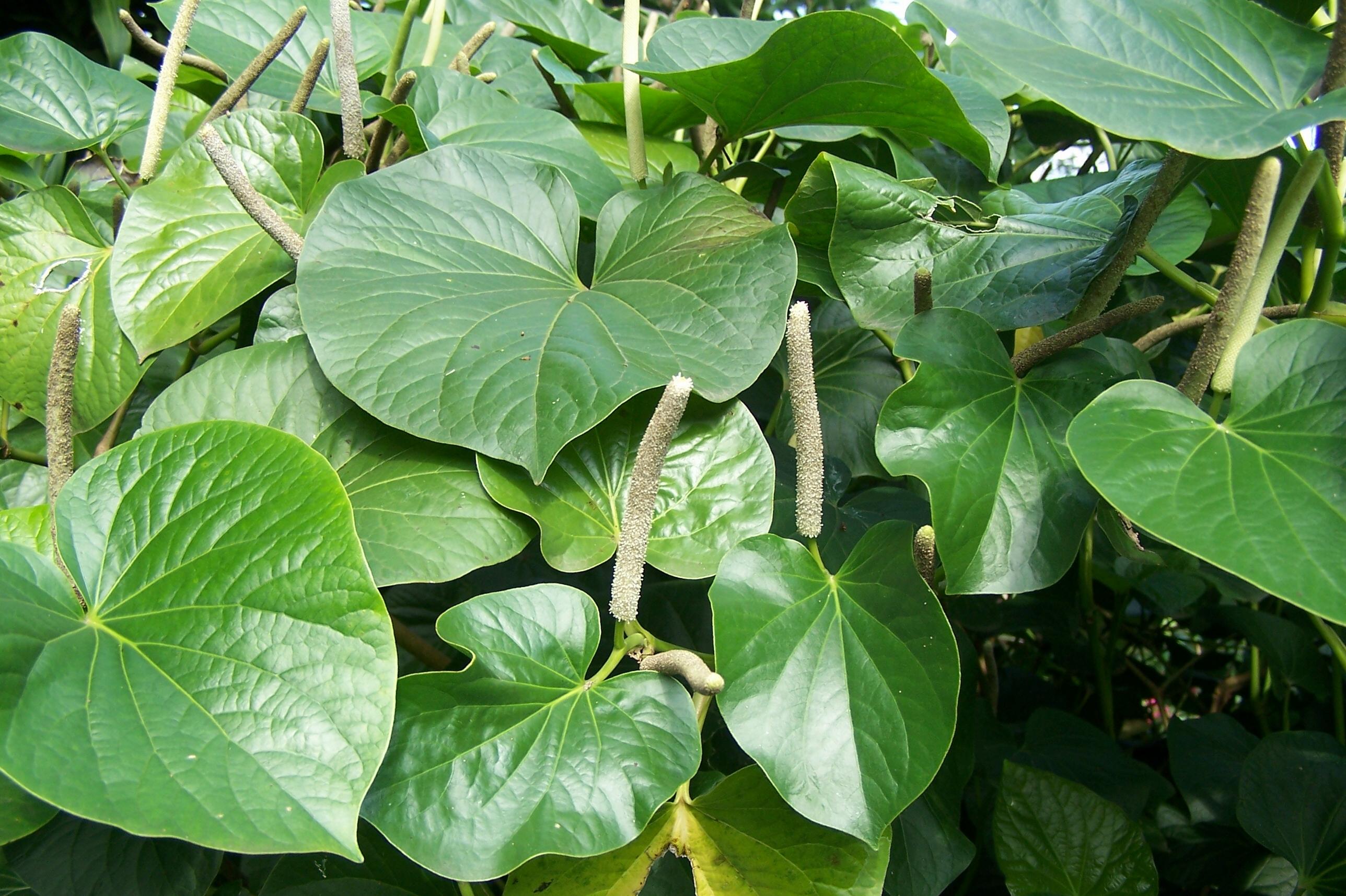
Piper
Piper spp.
Basic Information
🌿 Family: Piperaceae🗺️ Zone: 10-12
Other Names:
- Pepper Plant
- Pepper Vine
- Black Pepper (Piper nigrum)
- Betel Leaf (Piper betle)
- Root Beer Plant (Piper auritum)
🌡️ Ideal Temperature : 60°F – 90°F
🔥 Heat Tolerance: Up to 100°F
❄️ Cold Tolerance: Down to 32°F
🌱 Type: Perennial
Layers
- Shrub
- Vine
Functions
- Edible
- Medicinal
- Pollinator
- Wildlife Attractor
- Ground Cover
Pests
No pests associated with this plant.
Description
Piper species are a diverse group of plants ranging from herbaceous shrubs to woody vines. Notable species include **Piper nigrum** (Black Pepper), a climbing vine producing the well-known peppercorns; **Piper betle** (Betel Leaf), a vine with heart-shaped leaves used in traditional practices; and **Piper auritum** (Root Beer Plant), recognized for its large, aromatic leaves with a root beer scent. These plants typically thrive in tropical climates with high humidity and temperatures between 60°F and 90°F (15°C to 32°C). They prefer partial shade and well-draining, moist soils rich in organic matter.
🌞💧 Sun and Water Requirements:
- **Sun:** Partial shade to dappled sunlight.
- **Water:** Keep soil consistently moist but not waterlogged; high humidity is beneficial.
✂️🫘 Methods to Propagate:
- **Cuttings:** Most Piper species propagate well from stem cuttings. Select healthy, disease-free stems about 4-6 inches (10-15 cm) long, remove the lower leaves, and plant them in a moist, well-draining medium. Maintain high humidity and warm temperatures to encourage rooting.
- **Seeds:** Some species can be grown from seeds, though germination may be slow. Sow seeds on the soil surface, lightly press them in, and keep the medium moist and warm.
🧑🌾👩🌾 When to Harvest:
- **Black Pepper (Piper nigrum):** Harvest spikes when one or two fruits at the base begin to turn red, typically 3-4 years after planting.
- **Betel Leaf (Piper betle):** Leaves can be harvested once the plant is established, usually within a year.
- **Root Beer Plant (Piper auritum):** Leaves can be picked as needed once the plant reaches sufficient size.
Purpose
- **Edible:** Many Piper species have culinary uses. *Piper nigrum* provides black, white, and green peppercorns, essential spices worldwide. *Piper auritum* leaves are used in Mexican and Central American cuisines for their unique flavor.
- **Medicinal:** Various species possess medicinal properties. *Piper sarmentosum* is known for its anti-inflammatory and expectorant qualities, used traditionally to treat ailments like headaches and rheumatism.
- **Pollinator and Wildlife Attractor:** The small flowers of Piper plants attract various pollinators, including bees and butterflies, supporting local ecosystems.
- **Ground Cover:** Some species, due to their vining nature, can serve as ground cover, helping to suppress weeds and retain soil moisture.